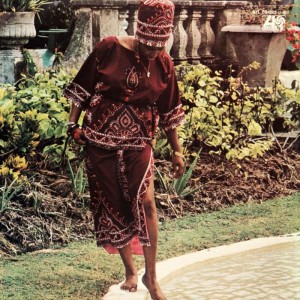 Here’s something I wrote in May, 1999, upon the reissue of the 1972 “Amazing Grace” album by Aretha Franklin, who died Thursday at 76.
Here’s something I wrote in May, 1999, upon the reissue of the 1972 “Amazing Grace” album by Aretha Franklin, who died Thursday at 76.
It should have been the most natural thing on Earth when Aretha Franklin entered the Los Angeles New Temple Missionary Baptist Church in January 1972 at the age of 29 to record her landmark gospel album `Amazing Grace.’’
The daughter of renowned preacher C.L. Franklin of Detroit, she had grown up in the church. It was at Detroit’s New Bethel Baptist Church where she honed her otherworldly vocals in praise of the Lord, influenced by the galaxy of gospel stars who came through town, from Mahalia Jackson to Clara Ward. No less than the Rev. James Cleveland taught her to play piano by ear. It was in her father’s New Bethel church where she recorded her first album — a gospel release — at 14.
“It was the church that first taught me how to stand on the stage,” she once told Down Beat magazine. “I was scared to death, but finally I learned how to stand there without fainting. It also helped me learn how to communicate with the audience, something very important because their response has a lot to do with the way I sing. If I feel it, and they don’t, I’ll lose something. But if they’re with me, we’ve got it.”
So why should she have been frightened to go into the Los Angeles church to return to gospel, with her own crack rhythm section and the Rev. James Cleveland directing the backing Southern California Community Choir?
At the time, just months before she’d turn 30, she was the unquestioned Queen of Soul. In just five years, she had amassed nine Top 10 hits, all of which went to No. 1 on the R&B charts; six Grammy awards; and four gold albums. She had more million-selling singles than any other woman in recording history.
More than that, she came to represent the empowered sound of civil-rights-era African Americans. When she sang “Respect,” it had more meaning than just a personal relationship; when she sang “freedom” at the end of “Think,” it rang beyond the confines of the song.
Despite breaking barriers, one thing that hadn’t been done too often was returning to the church after one had left gospel for pop stardom.
“I’d been after Aretha from the beginning to return to church and sing the Christian songs closest to her heart,” Jerry Wexler, producer of her Atlantic hits, said in his memoir, “Rhythm and the Blues: A Life in American Music.”
“She had a lot of qualms about doing it, and I could understand them,” Wexler told Franklin biographer Mark Bego. “There was a great feeling at this time about people who left the church and were singing the devil’s music. There was shame and guilt, and you couldn’t go back. When Sam Cooke went pop, he never went back and did another note of gospel.”
Still, Wexler wrote in his memoir, “None of us — not my co-producer Arif Mardin, not even Aretha herself — was quite ready for the quality of the performances. Aretha was on fire. … this was the stuff of myth.”
The public responded as well, making the double album released as a result of the session, “Amazing Grace,” the biggest-selling gospel album in history, and cracking the Top 10.
On the album, Franklin returned to her earliest roots with a version of “Never Grow Old,” the traditional song she had sung on her first solo album 15 years before, but also infusing gospel into the contemporary pop of Marvin Gaye’s “Wholy Holy” and Carole King’s “You’ve Got a Friend” and even the standard of Rodgers and Hammerstein’s “You’ll Never Walk Alone.”
The heart of the performance, a 15-minute reading of “Amazing Grace,” defined the meaning of taking your time during a song. Throughout, her voice swooped to heights it hadn’t previously scaled.
The Rev. C.L. Franklin was caught in a rare moment of speechlessness at the recording session, in comments resurrected in the 1999 reissue on Rhino Records, which adds an hour of unissued material from both evenings.
“If you want to know the truth, she has never left the church,” the elder Franklin said. “All you have to do is have something in here,” he said, indicating his heart, “and the ability to hear and the ability to feel, and you know that Aretha is still a gospel singer.”
Certainly that’s been clear in her performances at the end of the 20th century, where she’d alter hits like “(You Make Me Feel Like) A Natural Woman” to assert, “He makes me feel like a natural woman.” Church informed everything, from her gospel piano playing behind Simon and Garfunkel’s “Bridge Over Troubled Water” to even engineering her 1985 hit “Freeway of Love” with an off-ramp to heaven.
“I don’t know if I did learn to balance both,” Franklin said of the secular and sacred aspects of her music. In an interview with the Los Angeles Times earlier this year, she said, “I just do what I do.”